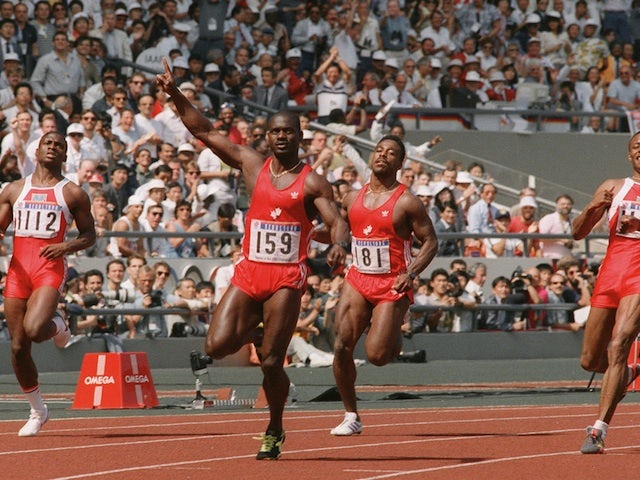Although sportspeople are often the pinnacle of human evolution, there have been plenty of cases of cheating throughout history. In recent times there was Calcipoli, which was a large-scale betting scandal in Serie A, as well as spot-fixing in Pakistani cricket. Arguably the worst kind, and certainly most high-profile, type of cheating in sport is the taking of performance-enhancing drugs.
The biggest story in the past year has been Lance Armstrong finally admitting that he was taking performance-enhancing drugs for all seven of his Tour de France wins. There have been plenty of doping cases in athletics, but it is something of a coup when the athlete involved is an Olympic champion in the most high-profile event of all. This is exactly what happened on this day 25 years ago in 1988.
A year before the Olympics in Seoul, Canadian sprinter Ben Johnson had been beaten by American Carl Lewis in the World Championships semi-finals in Rome. However, the Canadian came back to win gold, setting a new world record time in the process by a whole tenth of a second. He was incredibly quick leading up to the Olympics the following year, but it was soon to be clear why.
 © Getty Images
© Getty Images
Johnson was the bronze-medallist at the 1984 Olympics, with Sam Graddy second and both comfortably behind Lewis who romped to gold. Johnson knew that he had to improve - a lot - if he was to win a gold medal, and 1987 had proven that in the three years since he had become a real challenger for Olympic gold.
How he improved, however, was not by putting the extra hours in practice - although he may well have - but by taking the steroid stanozolol. He had suffered a number of injuries and poor performances in the build-up to the games, which may have seen his dose upped enough to get caught, but either way his glory from the 100m final on September 24 was about to be stripped.
In the race itself, Johnson absolutely flew out of the blocks. His start remains one of the fastest in Olympic finals and he led from start to finish. There was even time as he neared the line for a celebration as he looked across to see no-one even close to him. The world record at the time was the one he set in Rome the previous year of 9.83s, but he shaved another 0.04s off that in Seoul.
However, Johnson was woken upon the morning of September 27 to be told that he was being sent home from the Games in disgrace, with his gold medal and the record both stripped from the books. It meant that Lewis was promoted to first place, with Great Britain's Linford Christie claiming silver and bronze going to Calvin Smith.
Initially, Johnson's camp denied the claims that he was taking drugs, but later the man himself would admit to it and even revealed that his world record in 1987 was under the influence. That, too, was stripped.
It was a dark time for athletics as no fewer than six of the eight finalists from 1988 would become involved in drugs scandals throughout their careers. As well as Johnson, it was revealed that Lewis had tested positive for various substances earlier in his career and Christie was shamed by scandal at the end of his.








